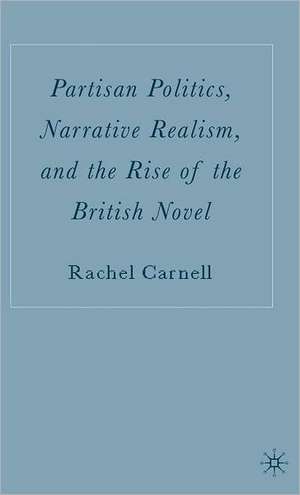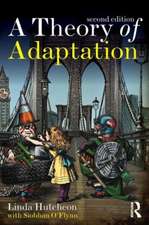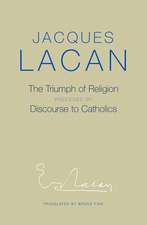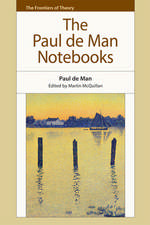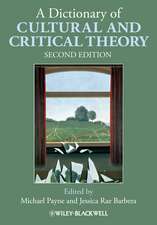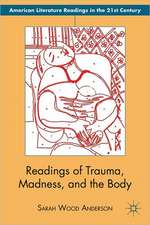Partisan Politics, Narrative Realism, and the Rise of the British Novel
Autor R. Carnellen Limba Engleză Hardback – 6 iun 2007
| Toate formatele și edițiile | Preț | Express |
|---|---|---|
| Paperback (1) | 383.50 lei 6-8 săpt. | |
| Palgrave Macmillan US – 6 iun 2007 | 383.50 lei 6-8 săpt. | |
| Hardback (1) | 386.39 lei 6-8 săpt. | |
| Palgrave Macmillan US – 6 iun 2007 | 386.39 lei 6-8 săpt. |
Preț: 386.39 lei
Nou
Puncte Express: 580
Preț estimativ în valută:
73.94€ • 79.06$ • 61.65£
73.94€ • 79.06$ • 61.65£
Carte tipărită la comandă
Livrare economică 18 aprilie-02 mai
Preluare comenzi: 021 569.72.76
Specificații
ISBN-13: 9781403970138
ISBN-10: 1403970130
Pagini: 226
Ilustrații: X, 226 p.
Dimensiuni: 140 x 216 x 18 mm
Greutate: 0.38 kg
Ediția:2006
Editura: Palgrave Macmillan US
Colecția Palgrave Macmillan
Locul publicării:New York, United States
ISBN-10: 1403970130
Pagini: 226
Ilustrații: X, 226 p.
Dimensiuni: 140 x 216 x 18 mm
Greutate: 0.38 kg
Ediția:2006
Editura: Palgrave Macmillan US
Colecția Palgrave Macmillan
Locul publicării:New York, United States
Cuprins
Introduction: Realism and the Rise of the Novel Political Discourse and the Abstract Individual Proto-Novelistic Propaganda and Narrative Realism Tory Ideology and Aphra Behn's Turn to the Novel Daniel Defoe and the Whig Ideal of Selfhood Character and Politics in Samuel Richardson's Fiction Jacobite Ideology and Eliza Haywood's Response to Whig Realism Nature, Systems, and the Individual
Recenzii
'This book considers how the narrative and formal conventions that have come to be known as 'narrative realism' or formal realism are, in fact, implicitly and strategically political in their initial deployment. The study reminds us that both formal analysis and political readings should not only be re-introduced to the consideration of the novel, but can also be read as mutually informing. As Carnell effectively articulates, we now naturalize a split between the political and the literary which would not have existed for an eighteenth century reader. Indeed, eighteenth century political discourse, in a period without our mania for generic classifications, could have been active in shaping notions of human characteristics or 'realism' - as active, argues Carnell, as the novel itself. This is a very thoughtful and cogently argued study that brings new perspectives and insights to canonical and also much less well-known fictional texts of the period.' - Catherine Ingrassia, Professor of English, Virginia Commonwealth University
"Partisan Politics allows us to read for the first time former political hacks turned novelists, such as Fielding and Defoe, with regard to their earlier work. No longer are they to be understood as writers who yearned to be novelists, but who could only manage it in old age. Their political writings are here seen as a logical grounding for their turn to the novel form. Underpinning Carnell's argument is the idea that in the developing texts, the aesthetics on the 'realistic' character were always set against a political caricature of a member of the hated opposition: a type made as horrible as possible, and deriving from the political pamphlet. Carnell argues from a host of examples that prose writing in the period was never a taxonomy of species, but always consumed by the contemporary audience as a continuum of similar types of writing, from hard political comment to the more aesthetic novel. Thus, the pamphlet must be analysed in terms of the aesthetics of the good, the bad, and the ugly they describe, much as the novel must be analysed in terms of the aesthetics of the politics of its 'real' characters.This book is insightful and original in its arguments.' Dr. Chris Mounsey, School of Cultural Studies, University of Winchester, England
"Partisan Politics allows us to read for the first time former political hacks turned novelists, such as Fielding and Defoe, with regard to their earlier work. No longer are they to be understood as writers who yearned to be novelists, but who could only manage it in old age. Their political writings are here seen as a logical grounding for their turn to the novel form. Underpinning Carnell's argument is the idea that in the developing texts, the aesthetics on the 'realistic' character were always set against a political caricature of a member of the hated opposition: a type made as horrible as possible, and deriving from the political pamphlet. Carnell argues from a host of examples that prose writing in the period was never a taxonomy of species, but always consumed by the contemporary audience as a continuum of similar types of writing, from hard political comment to the more aesthetic novel. Thus, the pamphlet must be analysed in terms of the aesthetics of the good, the bad, and the ugly they describe, much as the novel must be analysed in terms of the aesthetics of the politics of its 'real' characters.This book is insightful and original in its arguments.' Dr. Chris Mounsey, School of Cultural Studies, University of Winchester, England
Notă biografică
RACHEL K. CARNELL is Associate Professor of English, Cleveland State University, USA.
